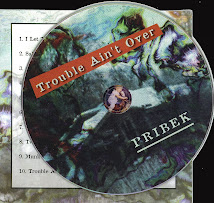Google had fought the request on privacy grounds and argued that it could not easily hand over its viewing logs due to the amount of data they contained. Judge Stanton rejected the arguments, decribing the company's privacy concerns as speculative and suggesting that claims of practical difficulties were unfounded.
“While the logging database is large, all of its contents can be copied onto a few off-the-shelf four-terabyte hard drives,” he said.
Privacy campaigners attacked the decision. The Electronic Frontier Foundation described it as a “setback to privacy rights [that] threatens to expose deeply private information about what videos are watched by YouTube users.
“We urge Viacom to back off this overbroad request and Google to take all steps necessary to challenge this order and protect the rights of its users,” the group said.
Google forced to reveal users' YouTube viewing habits
by Holden Frith
Viacom had also demanded that Google should disclose YouTube’s source code, a commercially sensitive piece of code that would reveal the inner workings of the site, but the judge denied that request. He said that Viacom had not provided evidence to support its claim that YouTube’s source code could be adapted to filter out copyright-protected material.
Google has consistently denied that YouTube infringes copyright, saying that it takes down protected videos from the site when asked by content owners, as required by United States law.
After the lawsuit was filed, Google accused Viacom of "threatening the way millions of people legitimately exchange information, news, entertainment and political and artistic expression".
- Who owns Viacom?
- So you mean when I checked that little box where "I accept the terms and conditions of youTube" it didn't really mean anything to anyone in the two known universes?
- Isn't a billion dollar lawsuit just about a dollar per IP address?
Viacom, the parent company of MTV, filed a $1 billion lawsuit against the video-sharing site last March. It demanded that Google, which owns YouTube, should hand over data about how people use the site, arguing that the information would show that copyright-protected material was routinely posted and watched.
Judge Louis Stanton of the US District Court granted the request, ordering Google to divulge details of every video clip uploaded to the site, along with viewers’ YouTube usernames and IP addresses.
An IP address identifies individual computers connected to the internet but cannot be linked to a name or address without the help of an internet service provider. YouTube usernames may identify individuals if people have signed up using their own names.





No comments:
Post a Comment